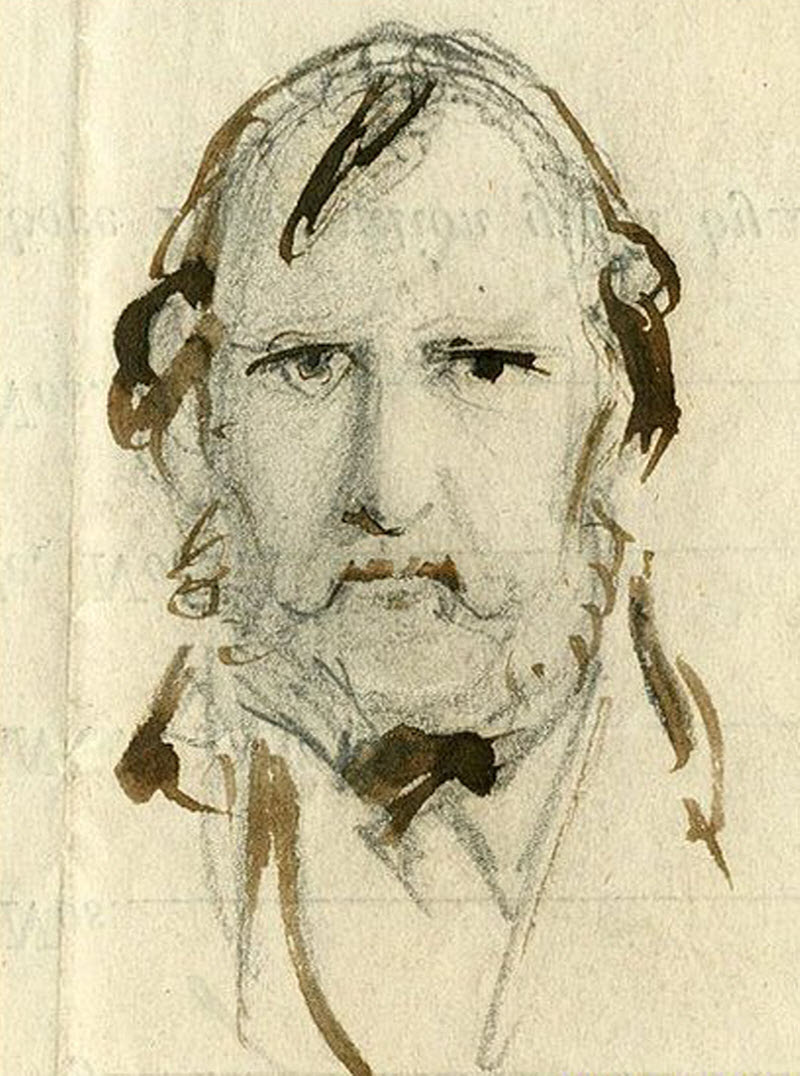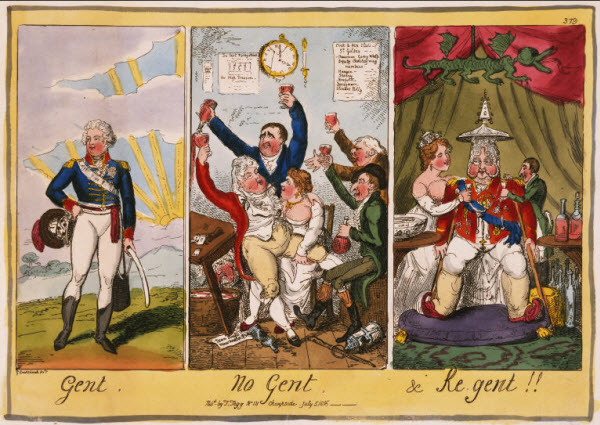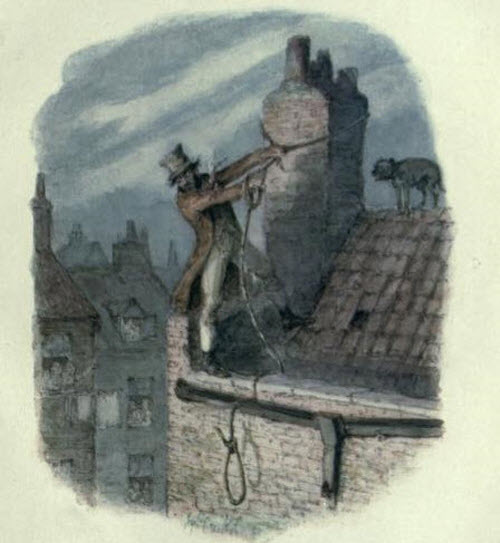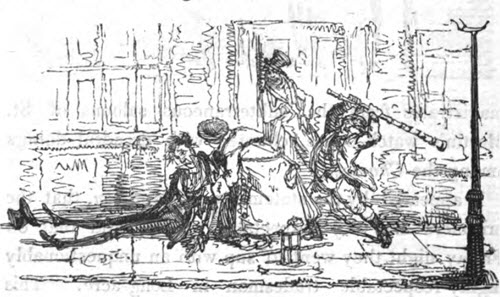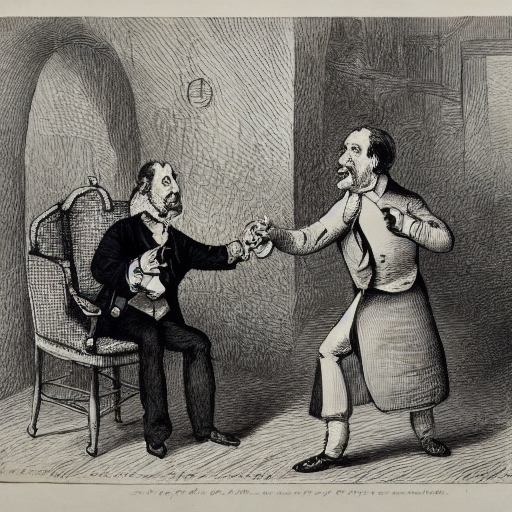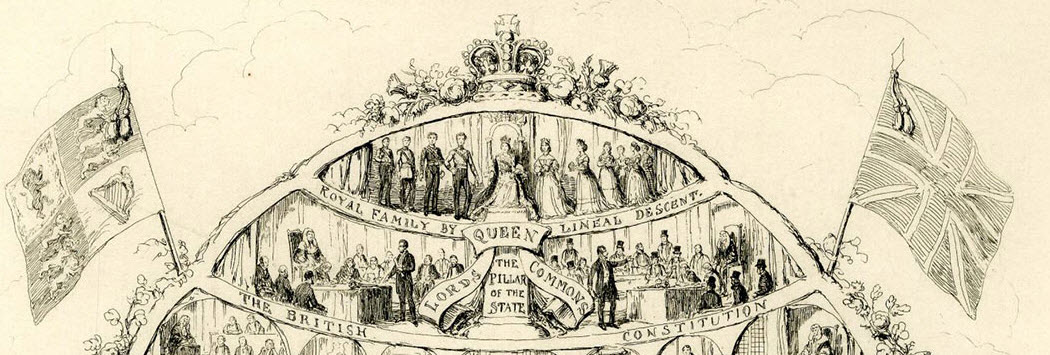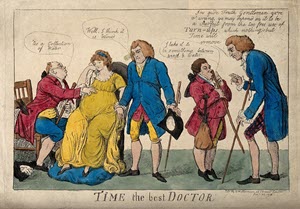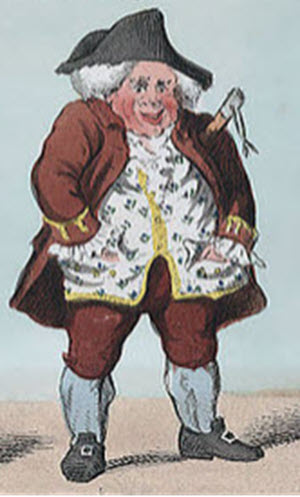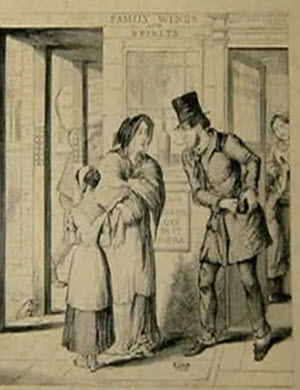in those days of grinning, good-natured mechanics, who spelt the songs, and spoke them out for the benefit of the company, and who received the points of humour with a general sympathizing roar. Where are these people now ? You never hear any laughing at HB.; his pictures are a great deal too genteel for that -- polite points of wit, which strike one as exceedingly clever and pretty, and cause one to smile in a quiet, gentleman- like kind of way.
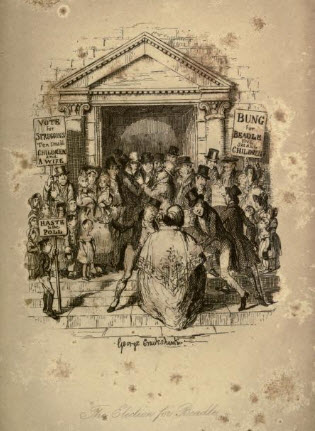
There must be no smiling with Cruikshank. A man who does not laugh outright is a dullard, and has no heart; even the old Dandy of sixty must have laughed at his own wondrous grotesque image, as they say Louis Philippe did, who saw all the caricatures that were made of himself. And there are some of Cruikshank's designs, which have the blessed faculty of creating laughter as often as you see them. As Diggory says in the play, who is bidden by his master not to laugh while waiting at table -- " Don't tell the story of Grouse in the Gun-room, master, or I can't help laughing." Repeat that history ever so often, and at the proper moment, honest Diggory is sure to explode. Every man, no doubt, who loves Cruikshank has his Grouse in the Gun-room. There is a fellow in the ' Points of Humour' who is offering to eat up a certain little general, that has made us happy any time these sixteen years; his huge mouth is a perpetual well of laughter -- buckets full of fun can be drawn from it. We ha^ e formed no such friendships as that boyish one of the man with the mouth. But though, in our eyes, Mr Cruikshank reached his apogee some eighteen years since, it must not be imagined that such is really the case. Eighteen sets of children have since then learned to love and admire him, and may many more of their successors be brought up in the same delightful faith. It is not the artist who fails, but the men who grow cold -- the men, from whom the illusions (why illusions? realities) of youth disappear one by one; who have no leisure to be happy, no blessed holidays, but only fresh cares at Midsummer and Christmas, being the inevitable seasons which bring us bills instead of pleasures. Tom, who comes bounding home from school, has the doctor's account in his trunk, and his father goes to sleep at the pantomime to which he takes him. Pater infelix, you too have laughed at clown, and the magic wand of spangled harlequin; what delightful enchantment did it wave around you, in the golden days "when George the Third was king!" But our clown lies in his grave; and our harlequin, Ellar, prince of how many enchanted islands, was he not at Bow street the other day, at Bow street, in his dirty, tattered, faded motley-- seized as a law-breaker, for acting at a penny theatre, after having
